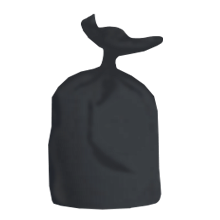Friday 15 May 2020
The Committee for Education, Sport & Culture has announced how education will be delivered as the island moves into the next phase of its response to COVID-19. The plans are informed by the advice of the Director of Public Health and senior educationalists.
Students and staff at all States' schools will be on half term holiday for the week starting Monday 25th May. In the following week - starting Monday 1st June - Distance Learning will be maintained as at present with schools open only to vulnerable students and children of essential workers.
From Monday 8th June, students in primary schools will be able to attend school on two days each week. Approximately half of students will attend on Monday and Tuesday with the other half attending on Thursday and Friday. Siblings at the same school will attend on the same days. Wednesdays will be used for enhanced cleaning of schools and for teachers to have sufficient planning time to develop home learning activities for children to complete on the three days each week when they are not in school. Vulnerable students and children of essential workers will continue to be supported on all four days when primary schools are open (Monday, Tuesday, Thursday and Friday) if this is required by their parents during discussions with schools.
Primary schools will contact parents during the half term holiday to provide details about how the system will operate in practice at their school, including confirming which days of the week their child should attend.
For the time being, and until public health guidance is relaxed further, secondary schools will remain closed to most students. As at the present time, the only students who will be allowed to attend secondary schools after half term are vulnerable students and children of essential workers. The strong advice of leaders of secondary schools is that the best way to provide students with an acceptable standard of education, while complying with current restrictions, is to maintain the arrangements of Distance Learning.
If secondary schools were to reopen to more students, each student would need to remain in one class throughout the school day, which would prevent the delivery of subject-specific lessons. Each student would have to be in school for half the school week or less and it would not be possible for secondary school staff to maintain Distance Learning to an acceptable standard for students to carry out during the days when they would be at home.
The Committee is fully committed to getting secondary students back into school as soon as possible and will keep the arrangements under review so that it is ready to reopen schools more fully as soon as restrictions are relaxed further.
At St Anne's School in Alderney and at Herm School class sizes are often smaller. Discussions will be held with the leaders of those schools next week to assess whether there are opportunities to vary the Bailiwick arrangements in those islands after the half term holiday.
Separately, schools which support children with special educational needs and disabilities will broadly continue as they have in recent weeks. Students are supported as their individual needs require in collaboration with parents, schools and appropriate support services.
From 1st June, the College of Further Education, which is part of The Guernsey Institute, will invite students to attend who would benefit most from on-site tuition taking into account the specific requirements of their courses. In order to comply with social distancing measures, College campuses will accommodate no more than 50% of their normal number of students at any one time.
The latest public health advice also allows changes to be made in the early years phase. In addition to vulnerable children and the children of essential workers, pre-schools and nurseries will now be able to have more children on-site and as far as possible they will give priority to children in their pre-school year. The number of children permitted on any one site will be limited by staff-to-children ratios, the size of their premises and how the space is used, and providers must maintain bubbles of not more than eight children in a designated space.
Early years providers must submit their plans to the States' Early Years Team for approval. All providers will be contacted by the States' Early Years Team today to offer further guidance and support. Providers will then be able to talk to their parents to begin to make detailed plans for their children.
Deputy Matt Fallaize, President of the Committee for Education, Sport & Culture, said:
'These are finely-balanced decisions and the Committee has been very careful to look at all the possible options from every angle and take into account the advice of professionals in public health and education. The ideal is for schools and colleges to be fully open and for all students to be allowed on site. Unfortunately, at the moment, that is impossible as we must follow the public health advice. None of the potential options for phased return were without weaknesses and challenges, and none would work well for every student, parent and member of staff.
Primary education is delivered in a way which makes it possible to get all students back into school two days each week. For example, it is normal for children to spend most of their lesson time in the same class and so it is less challenging to comply with public health requirements to maintain single classroom bubbles. On the other three days of the week, Distance Learning will not necessarily be quite the same as parents have come to recognise it in recent weeks, but teachers will provide some learning activities to be done at home. This strikes the best balance currently available: all younger children will get back to having some experience of school with the opportunities that presents to spend time with other children and continue to develop their social skills.
Secondary education is delivered in a way which is very different from primary education. For example, students move around every hour or so as they go from lesson to lesson. They have many different teachers every day. In many cases students have different classmates from one lesson to the next. At the moment, such practices are not possible in line with public health guidance on social distancing and bubbles. The strong advice from the leaders of our secondary schools was that if more students were back in school there would only be very limited opportunities for meaningful learning. In addition, staff would not be able to maintain Distance Learning of the current standard. All of this means that for the time being the best educational experience for secondary students will be delivered by maintaining the current Distance Learning offer five days a week. We know this means that many students will have less social interaction with their peers than is desirable, but the other options we considered in conjunction with education professionals would result in an unacceptable decline in the standard of education offered to all students.'
Dr Nicola Brink, Director of Public Health, said:
'Closing schools, colleges and early years providers for all but those who are the children of essential workers and vulnerable students has been a key part of our response to this pandemic to date. I have no doubt that it helped slow the transmission of the virus that causes COVID-19 within the community. But given the gains we have made and the current positive position as we move through the phases of our exit strategy, now is the right time for schools to have the opportunity to start re-introducing more students as long as numbers are restricted, social distancing maintained and enhanced hygiene in place. Of note, is that this will only occur in three weeks' time, giving us a further opportunity to build on what we, as a community, have achieved to date. While I am not an educationalist and so am not in a position to advise on models, I am confident that Education is committed to following the guidelines that I have provided for a return to education for more pupils. The Public Health Team will continue to work closely with Education as we move towards a phased re-opening on schools.'













